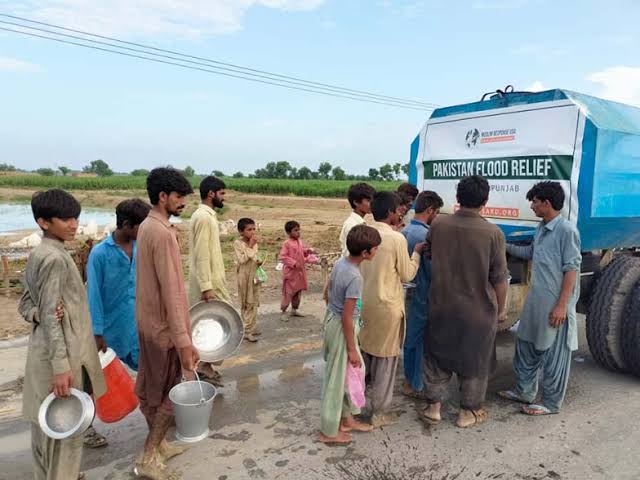The United States has pledged an additional $100 million to aid Pakistan’s recovery from the devastating floods of 2022.
This takes the total US assistance to more than $200 million since August.
Heavy monsoon rains in Pakistan in 2022 caused flooding and landslides, killing approximately 1,700 people and injuring tens of thousands more. A total of 33 million people are estimated to have been affected, with hundreds of thousands still displaced. Cropland was destroyed, as were sanitation systems.
“We always support the people of Pakistan — and especially in times of crisis,” Secretary of State Antony Blinken said, noting that the new funding will strengthen agriculture, food security and essential health services in flood-affected areas while improving Pakistan’s climate resilience.
Read also: US says food insecurity in Africa will persist due to climate change, conflict
According to reports, the additional $100 million will be used to rebuild damaged infrastructure in Pakistan as well as to invest in clean energy, disease surveillance, and economic growth. It will also provide humanitarian assistance to flood-affected Afghan refugees and their host communities in Pakistan.
In 2022, the United States government responded quickly to the natural and humanitarian disaster last year by providing more than $100 million for relief efforts, including food, drinking water, nutrition, sanitation, and shelter assistance, as well as resilience building.
The American people and the private sector in the United States also contributed $37 million in essential goods and services for flood relief, including food, water, medicine, and health care.
U.S. Agency for International Development (USAID) Deputy Administrator Isobel Coleman announced the additional funding January 9 at the International Conference on Climate Resilient Pakistan in Geneva, which convened governments, international partners and the private sector to secure assistance for Pakistan.
At the conference, Coleman said U.S. support for Pakistan’s flood recovery and climate resilience will extend beyond emergency assistance. Emphasizing the two countries’ long-standing partnership, she noted that schools constructed with U.S. support served as shelters in hard-hit areas. The U.S.-constructed Jacobabad Institute of Medical Sciences provided emergency health services.
“The United States will continue to partner with Pakistan in times of need — and work to boost resilience and strengthen Pakistan’s response and recovery systems in the face of recurrent disasters,” Coleman said.
Story was adapted from ShareAmerica.
